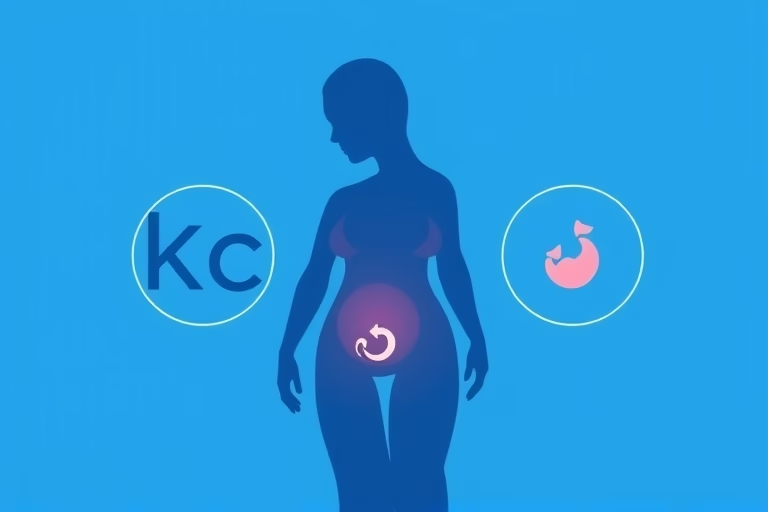When dealing with fertility issues, many couples may experience multiple unsuccessful attempts at in vitro fertilization (IVF). Many find themselves asking, “3 failed IVF cycles, what next?” This question is crucial because it encompasses not only the emotional turmoil of failed attempts but also the practical steps to consider moving forward. Infertility can be a complex and sensitive journey, and understanding the options available after three failed IVF attempts is vital for physical and mental well-being.
Each IVF cycle comes with its set of hopes and dreams. However, when faced with three unsuccessful cycles, it is essential to assess the underlying factors contributing to the inability to conceive. This knowledge allows couples to approach their journey with a fresh perspective and informed options. In this guide, we will examine various aspects of what couples can consider after experiencing three failed IVF cycles.
Understanding IVF and Its Challenges
In vitro fertilization involves combining eggs and sperm outside the body to create embryos, which are then transferred to the uterus. While IVF offers hope for many couples, it does not guarantee success. Each cycle’s success rate can be influenced by several factors, including age, health conditions, and fertility diagnosis.
When experiencing repeated failures, it’s vital to explore the reasons behind these setbacks. Factors may include:
Recognizing the challenges that IVF presents makes it easier to navigate what next steps to take. Consultation with a fertility specialist is essential to understand how individual factors contribute to cycle failure.
Exploring Alternative Fertility Treatments
After three unsuccessful IVF attempts, couples may consider alternative fertility treatments. Some promising options include:
ICSI is particularly beneficial in cases of male infertility, as it directly injects sperm into an egg. Donor eggs or sperm may also provide a solution for couples facing issues with their gametes. Additionally, gestational surrogacy involves another woman carrying the pregnancy, which can be a viable option for couples facing significant physical challenges with pregnancy.
Hormonal therapies may be used to optimize conditions before another round of IVF or as a standalone treatment. Engaging in discussions with fertility specialists about the potential benefits and risks of these alternatives can guide couples in making informed decisions.
Evaluating Lifestyle Changes for Improved Fertility
Sometimes, lifestyle changes can significantly impact fertility rates. Couples may want to consider:
Eating a balanced diet rich in antioxidants, vitamins, and minerals can promote reproductive health. Regular exercise helps maintain a healthy weight, which is important for hormone balance. Avoiding alcohol, cigarettes, and recreational drugs can help improve the body’s natural fertility. Incorporating stress management strategies, such as meditation or yoga, can also create a better mindset for future attempts.
Emotional and Psychological Support
Coping with multiple IVF failures can take an emotional toll on individuals and couples. Emotional support is critical in navigating this challenging journey. Options include:
Talking to a therapist who specializes in infertility can help individuals process their feelings. Joining support groups provides a sense of community and understanding, as others share similar experiences. Constructive communication with loved ones and partners allows couples to express their feelings and work through challenges together.
Engaging in Second Opinions and Different Clinics
After three failed IVF cycles, considering a second opinion from another fertility specialist can offer new insights and options. Each clinic may have its unique approaches and technologies that could improve the chances of success.
When seeking a new clinic, inquire about:
Personal recommendations, along with thorough research, can lead couples to more promising fertility specialists that align with their needs and expectations.
Understanding the Financial Aspects of Future IVF Treatments
Financial considerations are essential when contemplating what comes next after failed IVF cycles. The cost of repeated procedures can be significant.
To navigate these expenses effectively:
Many clinics offer financing plans or alternatives to lessen the financial burden. Understanding the potential costs and exploring available resources can ensure couples do not feel overwhelmed by the financial aspect of fertility treatments.
Emphasizing the Importance of Patience and Self-Care
The journey of infertility can be lengthy, requiring a great deal of patience. It is essential to prioritize self-care during this emotional rollercoaster. Practicing self-care includes:
Emotional resilience plays a significant role in navigating future IVF attempts. Allowing oneself space to heal and rejuvenate promotes overall well-being during this critical time.
Final Thoughts
After experiencing three failed IVF cycles, many individuals and couples find themselves at a crossroads, grappling with uncertainty and emotional distress. Understanding the journey ahead involves exploring various alternatives, from additional fertility treatments and lifestyle modifications to seeking emotional support and financial planning.
There is no one-size-fits-all solution, so assessing individual circumstances is vital. Engaging in open conversations with fertility specialists and embracing a holistic approach encompassing both mind and body can empower couples as they evaluate their next steps.
Ultimately, the path ahead is not solely defined by the failures of past IVF cycles. Each cycle provides valuable learning experiences that can guide informed choices moving forward. With the right support, resources, and determination, there is hope to keep pursuing dreams of parenthood. Remember, every journey is unique, and maintaining a positive outlook is crucial as you navigate what comes next.
Here are some frequently asked questions regarding IVF cycles:
- What should I do after three failed IVF cycles?
Consider seeking a second opinion, exploring alternative treatments, or making necessary lifestyle changes. - Are there alternative treatments to IVF?
Yes, options such as ICSI, donor gametes, and surrogacy may offer pathways to achieving pregnancy. - How can I cope emotionally after failed IVF?
Seeking therapy, participating in support groups, and maintaining open communication with your partner are helpful strategies. - Is it worth trying IVF again after multiple failures?
This depends on individual circumstances. Consulting with fertility experts can help assess the viability of further attempts. - What role does lifestyle play in IVF success?
Healthy lifestyle choices can positively affect fertility, including diet, exercise, and stress management.
Further Reading
What Type of Psychotherapy Is Best for Anxiety?







